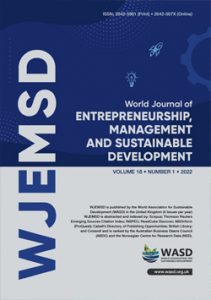Donor coordination in a fragile states of Africa: Capacity building for peace and poverty reduction, Dr. Abbi Kedir
Dr. Abbi M. Kedir
University of Leicester
UK
Email: ak138@le.ac.uk
DOI: 10.1108/20425961201000038
Abstract: Fragile states (FS) are often neglected and categorized as “aid orphans”. In extreme circumstances, they are loaded with aid beyond their absorptive capacity. However, whether they receive little or too much, there is a compelling imperative to coordinate aid aimed at capacity development effectively. In an ever shrinking pot of funds from donors mainly due to the current global economic downturn, it is extremely important to coordinate and harmonise aid delivery. FS cannot afford to waste any money trapped under rubble of multi‐donor aid bureaucracy. Due to the multidimensional nature of fragility, we draw on case studies and interdisciplinary insights from Authority‐Legitimacy‐Capacity (ALC), Country Development Framework (CDF) and other models and frameworks of donor coordination. A number of asymmetries (e.g. technical, cultural and, financial) between donors and recipients need to be addressed. Donors can harmonise their respective Africa strategies reports and give priority to infrastructure instead of focusing exclusively on the social agenda as in the past. FS should fight the local culture of corruption, avoid fungibility, protect vulnerable groups in society, focus on reintegration as well as demobilizing ex‐combatants with employment provisions. Donors should not give mixed signals to recipients and need to be flexible in their operational procedures. Finally, we discuss the implications of key emerging issues that threaten or facilitate sustainable reconstruction, development and poverty reduction in post‐conflict environments.
Keywords: Donor coordination; Interdisciplinary; Peace; Poverty; Fragile; Africa.
Citation: Kedir, A.M. (2011), "Donor coordination in a fragile states of Africa: Capacity building for peace and poverty reduction", World Journal of Entrepreneurship, Management and Sustainable Development, Vol. 7 No. 2/3/4, pp. 307-356. https://doi.org/10.1108/20425961201000038

